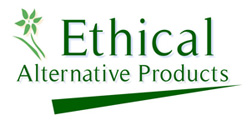Uses & Doses
The antioxidants used in Thiogel-L have been used for a variety of conditions that affect liver function. Prominent among these conditions are various forms of liver intoxication, infection, inflammation, and hepatic cell damage. A clinical study performed by Dr. Burton Berkson found that the triple antioxidant approach was effective in treating patients with Hepatitis C, as evidenced by their clinical recovery and remarkably improved laboratory values.
Numerous well-designed clinical trials have been conducted in Europe, primarily Germany, on the therapeutic efficacy of silymarin in the treatment of metabolic liver damage, chronic hepatitis, and bile duct inflammation, often induced by alcohol, drugs (psycopharmaceuticals), and chronic liver disease including certain forms of hepatitis. The hepatoprotective effects of silymarin have been demonstrated in accelerating normalization of impaired liver function.
There is a great deal of evidence indicating that selenium supplementation at high levels reduces the incidence of cancer in animals. More than two-thirds of over 100 published studies in 20 different animal models of spontaneous, viral, and chemically induced cancers found that selenium supplementation significantly reduced tumor incidence.
There is no established dose of ThioGel-L for the different areas of use. A 200 mg daily dose is typically used for general anti-oxidant protection. Doses up to 600 mg per day have been reported for use in Hepatitis C. When more than 200 mg. is taken per day, the dosage should be divided over the day to maintain blood levels over a longer period of time. If taking 400 mg. per day, a typical dosing schedule would be 200 mg. in the morning and 200 mg. in the afternoon. If taking 600 mg. per day, a typical schedule might be 200 mg. in the morning, 200 mg. in the afternoon, and 200 mg. in the evening.
These statements have not been evaluated by the FDA. This product is not intended to diagnose, treat, cure or prevent any disease.


